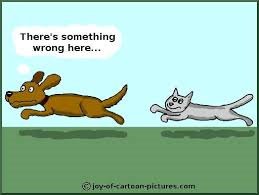So I recently stumbled across this article that really resonated with me - https://aeon.co/essays/the-autistic-view-of-the-world-is-not-the-neurotypical-cliche
It describes to negative connotations and stereotypes associated with autism and covers controversial areas, such as how autistic people lack empathy, are unable to love etc.
The scope of the article highlights how autistic people are observed and judged by neurotypicals and explains how their perceptions and prejudices are based on their own perspectives and experiences.
This may sound harsh and divisive at first, but there is a valid point throughout that due to our minority status, we rarely have a voice to explains ourselves and although I confess I could never fully understand something from a neurotypical perspective, at the same time I wouldn't expect a neurotypical to fully understand something from a neurodiverse perspective either.
What is depressing for me, is that despite that insight into each other worlds, so to speak, clearly lacking on some parts, it is the autistic person who us at fault and not a problem shared by both parties.
I shared this article with my partner and his response was, when are you going to accept life is unfair and you just have to get on with it. Of course he wants to crack on with things because it doesn't affect him! I gave the example of how it would appear should you swap the autistic person with someone who is homosexual or black - he didn't think the same thing applied and so this is why this article is so relevant for out times.
I don't want a NT and ND division, so how do we come to understand each other better?





